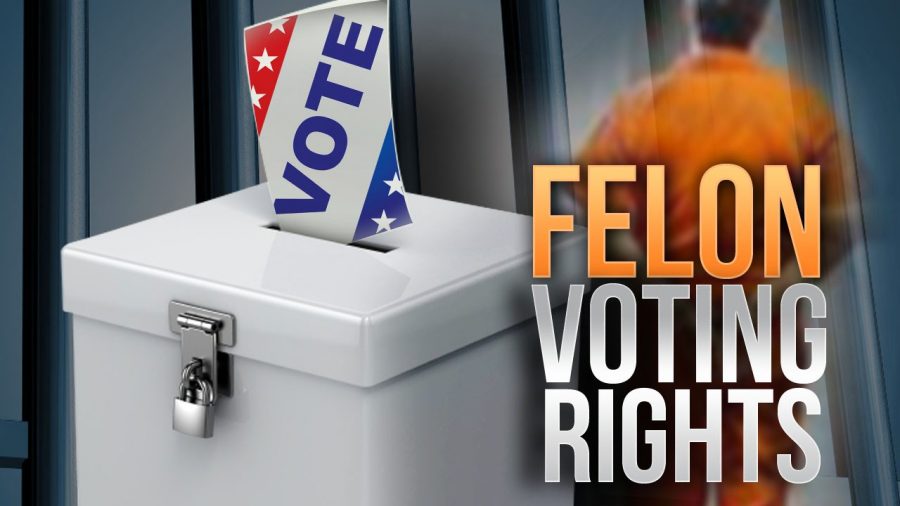Now That Florida has Given Felons their Right to Vote, GOP Wants to Take it Back
Do felons deserve a second chance?
April 9, 2019
There has been a long-standing debate over whether or not felons should be allowed to vote. In the midst of this debacle, 65% of Floridians voted to approve Amendment 4 of the state’s constitution, which restored the voting rights to former felons (granted they have completed the terms of their sentence), back in November 2018. When this took effect the next year in January, an estimated 1.5 million eligible Floridians were granted their right to vote. Since then, many more have continued to register, dramatically increasing the state’s voting rates.
However, this amendment did exclude those who were convicted of murder and sexual offenses, according to NBC News. This has caused some confusion, many wondering what exactly qualified as a “sexual offense.” Many worry that those charged with this crime could slip through the system and attain a right that they have lost by committing the crime they did.
“It’s not delaying it — the people spoke on it,” Governor Ron DeSantis told reporters in Tallahassee, the state capital, on Monday. “But I think it’s got to be implemented the way that the people intended. And I don’t think that they wanted to see any sex offenders fall through the cracks.”
On Tuesday, March 19, Florida legislators pushed forward a bill to limit the number of former felons who are allowed to vote. While that may not be the direct intention, this will at least result in a decrease, according to NBC News. This is because the bill, in part, requires former felons to pay back all court fees and fines before they are allowed to register.
Julie Ebenstein, a voting rights attorney at the American Civil Liberties Union, argues, in disagreement with the new bill, that while felons should complete their probation, prison, and parole sentences, requiring them to pay before attaining their right to vote is ridiculous. According to Vox, she believes that any payments that still need to be made should be paid throughout the process.
“What the barriers proposed in this bill do is nearly guarantee that people will miss election after election … because they cannot afford to pay financial obligations,” Julie Ebenstein, a voting rights attorney at the American Civil Liberties Union, told NBC News.
According to the New York Times, Governor DeSantis has claimed that lawmakers should clearly define which former felons are eligible so there is no confusion on what crimes deny them of their right to vote.
“Democrats will never stop fighting to expand access to the ballot and ensure that no one is silenced or sidelined on Election Day,” Tom Perez, the chairman of the Democratic National Committee, said in a statement on Tuesday.





































